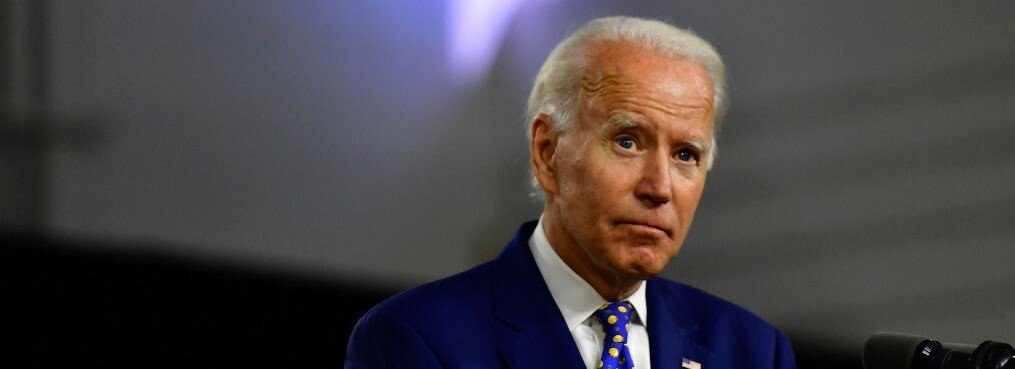It won’t be easy for President-elect Joe Biden to meet one of his goals for the country: bringing it together. Most of the more than 71 million Americans who voted for President Donald Trump last month have yet to accept the results, much like their candidate. In the latest Economist/YouGov Poll, most Trump voters have no confidence that the election was fair, and still say there was fraud in the voting, and that it changed the outcome.
- 70% of President Trump’s supporters have no confidence that the election was fair
- 82% say there was “a lot” of fraud this election
- 89% of those who say there was fraud believe it changed the outcome
That makes Biden’s election illegitimate to nearly all of his opponent’s voters, and they have not changed their minds in the last few weeks. The week after Biden was projected as the winner of enough electoral votes to win the election, only 12% of Trump voters said they believed Biden had been elected legitimately. Now, a month later, only 15% of Trump voters, basically the same proportion, believe it.
Trump supporters, like the President himself, continue to be hopeful that it will work out on January 20. Asked whether Biden will be inaugurated then, only one in three Trump voters (32%) say that will happen. Another one-third (32%) believe it will not, and 35% are not sure what will happen.
As for what President Trump should do, his voters don’t want him to concede. Though Election Day was more than five weeks ago, opinions have only hardened with no change in responses. The week after Biden assembled the necessary Electoral College votes to win, 79% of Trump voters said the President should not concede (21% said he should). This week, the responses from Trump voters have not budged: 22% think he should concede, 78% say he should not.
What Americans think of Rudy Giuliani and his legal challenges
In the days after the election, Trump voters were hopeful that the legal suits brought by the President and his team would succeed, and nearly two-thirds of Trump voters believed they would change the outcome (so far, they have not).
The man who leads the President’s legal team, former New York City Mayor Rudy Giuliani, is liked by the President’s supporters, but his overall favorable rating is far worse than it was in the days after the September 11, 2001 terrorist attacks, when he was called “America’s Mayor.” A November 2001 Quinnipiac Poll found 68% of Americans with a favorable opinion of Giuliani, and just 3% unfavorable. In a Fox News Poll conducted less than two weeks after the attacks, 76% were favorable and only 6% unfavorable.
Now, while Republicans and Trump voters have mostly positive opinions of Giuliani, even among them about one in five are unfavorable. Americans overall are unfavorable. This survey was partially fielded before Giuliani announced he had contracted COVID-19 on Sunday.
The President’s supporters also looked towards recounts, requested in several states that Biden carried, to potentially turn the election around. Immediately following the election, two-thirds (67%) of Trump voters claimed having those recounts would make them more confident in the reported election results (which indicated that Joe Biden had won). But, now that the recounts have taken place (without results changing), the President’s supporters are no more confident in the results. Only a third (33%) say they are more confident. About one in five (22%) say they are less confident.
What can the President-elect do to stimulate acceptance from those who did not vote for him? There is still more than a month remaining before the inauguration. The “safe harbor” deadline, when all state challenges are supposed to be completed, has just passed. States have certified their results, and electors will cast their ballots next Monday. It is possible that these actions may make Trump voters more accepting of the results.
Biden does have strengths with the nation at large. Americans are more confident than not (45% to 38%) in his ability to handle the COVID-19 outbreak, something they disapproved of when evaluating the current President’s handling of it, 53% to 40%. However, the public is closely divided on what will happen to the economy in a Biden presidency: 39% believe it will get better and 36% think it will get worse
As for whether he can bring the country together, even his own supporters are dubious, likely considering the current state of resistance from the President and his supporters. Only half of Biden’s own voters think he can bring the country together.
See the toplines and crosstabs from this Economist/YouGov Poll
Methodology: The Economist survey was conducted by YouGov using a nationally representative sample of 1,500 US Adults interviewed online between December 6 - 8, 2020. This sample was weighted according to gender, age, race, and education based on the American Community Survey, conducted by the US Bureau of the Census, as well as 2016 Presidential vote, registration status, geographic region, and news interest. Respondents were selected from YouGov’s opt-in panel to be representative of all US citizens. The margin of error is approximately 3.3% for the overall sample.
Image: Getty











